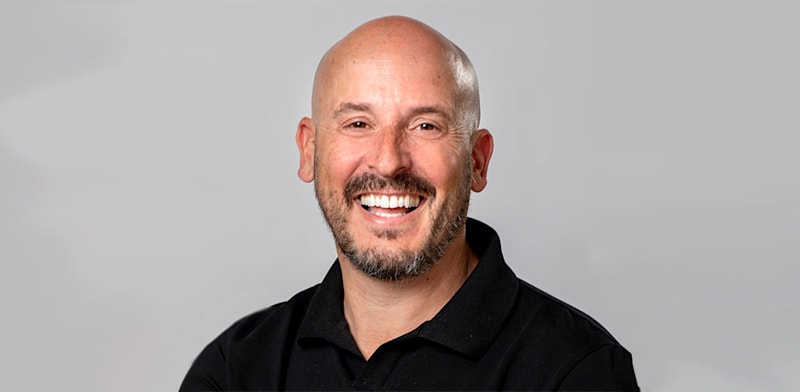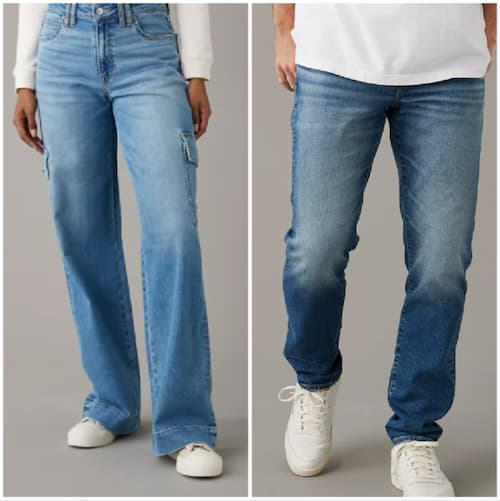When NBA fans debate who is the greatest of all time (the GOAT), the name that comes up the most is Michael Jordan. There are arguments for other players, such as Bill Russell, Kareem Abdul-Jabbar, Kobe Bryant, and LeBron James, to name a few. While those names deserve to be in the pantheon of basketball greats, there can only be one GOAT: Jordan.
Even though Jordan is the GOAT, there is still room for other great all-time players. There is plenty of space to acknowledge them. However, Mount Rushmore’s concept of only naming the four greatest players of all time is too exclusionary, primarily due to recency bias. The best way to recognize all basketball greats throughout the history of the NBA is to break it down by the greatest players of each decade.
In some decades, there may be only one or two generational standout players. In other decades, numerous players could be considered transformational talents. In either case, this is the most equitable method of recognizing the greatest in basketball. In addition to naming the legends from each decade, I’ll explain why Michael Jordan is the undisputed GOAT.
The 1950s
George Mikan
Mikan played back when the NBA was known as the Basketball Association of America (BAA). Known as Mr. Basketball, he helped the Minneapolis Lakers win four championships. He also has the distinction of being named to the first six All-NBA and All-BAA Teams.
Dolph Schayes
During this decade with the Syracuse Nationals, Schayes was named to six All-NBA First Teams and four All-NBA Second Teams and had nine All-Star game appearances. He was a leading scorer and rebounder and also won an NBA championship with the Nationals in 1955.
The 1960s
Elgin Baylor
As a prolific shooter, rebounder, and passer, Baylor was one of the best all-around players ever to play the game. He was the number one draft pick for the Minneapolis (soon to be Los Angeles) Lakers, but his accomplishments don’t end there. Baylor was named Rookie of the Year in 1959, named to the All-NBA first team ten times, and was an NBA All-Star for all but one year in the 1960s.
Bob Pettit
Pettit’s 11-year professional basketball career was spent with the Milwaukee/St. Louis Hawks. Although he retired in 1965, Pettit is still among the greatest in rebounds and points scored per game. He was selected as an All-Star during each year of his career.
Bill Russell
One of the original big men of the NBA, Bill Russell, was the face of the Boston Celtics, leading the team to a record-setting 11 championships during his 13-year career. He was the first player ever to win back-to-back NCAA and NBA championships. During the 1960s, Russell was selected to the All-Star team ten times and named league MVP four times, to name a few of his many accomplishments.
Jerry West
Jerry West’s image is used as the NBA logo for a reason. As one of the top offensive players of the 1960s, he was a highly efficient scorer, ranking seventh in the all-time number of points scored per game. West was selected to six All-NBA First Teams and nine All-Star teams.
Oscar Robertson
Nicknamed The Big O, the point guard played for the Cincinnati Royals during this decade. Robertson was the first player to average a triple-double for a season. He was a Rookie of the Year winner, a 12-time All-Star, was named All-Star MVP three times, and was named to the All-NBA Team 11 times in his career.
Wilt Chamberlain
With a height of 7’1″, it’s no surprise his nickname was Wilt the Stilt. A dominant offensive center, Chamberlain is the only player in NBA history to score 100 points in a game and the only player to average 30 points and 20 rebounds per game in a single season. He was awarded both the Rookie of the Year and NBA Most Valuable Player in his first season.
The 1970s
Wes Unseld
Like Wilt Chamberlain, Unseld won both the Rookie of the Year and NBA Most Valuable Player in his first season. Playing his entire career with the Washington Bullets, he won an NBA championship in 1978. Viewed as one of the best rebounders in the history of the NBA, Unseld averaged a double-double in almost 1,000 games.
Walt Frazier
Frazier was an exceptional guard and all-around player, ranked among the best at shots, passes, and steals. In addition to winning two championships with the New York Knicks, Frazier was a seven-time NBA All-Star, one-time All-Star Game MVP, named to the All-NBA First Team four times, and the All-NBA Second Team twice.
Kareem Abdul-Jabbar
A career center for the Milwaukee Bucks and the Los Angeles Lakers, Kareem Abdul-Jabbar’s career accomplishments during the 1970s is unparalleled. He won a championship with the Bucks, was named NBA Finals MVP, was honored as NBA Most Valuable Player five times, was an NBA All-Star for every year except 1978, was named to the All-NBA First Team six times, and the All-NBA Second Team three times. That doesn’t even include the awards he received in the 1980s.
The 1980s
Julius Erving
After a sterling career in the American Basketball Association (ABA), Julius Erving’s NBA career was just as successful, culminating in an NBA championship in 1983. In addition to being a champ, the forward earned MVP honors in 1981, was an All-Star eight times and was named to the All-NBA First Team five times.
Larry Bird
The small/power forward for the Boston Celtics was a scorer with nearly unlimited range, making him one of the dominant players of the decade. The 1980 Rookie of the Year was also a three-time NBA champ, named the NBA Finals MVP twice, and was selected to play on nine All-Star teams in the 80s.
Magic Johnson
The Los Angeles Lakers point guard was seen as a once-in-a-generation player due to his ability to play any position on the court. That kind of versatility is almost unheard of in professional basketball. Besides winning five rings with the Lakers, Magic was an NBA Finals MVP three times and an NBA MVP twice.
The 1990s
Charles Barkley
Known as Sir Charles and The Round Mound of Rebound, the power forward may have never won a championship, but highlighting that minimizes his dominance on the court. With his ability to score and create plays for his teammates, Barkley was a highly effective offensive player. During the 1990s, he was selected to the NBA All-Star team eight times and was the 1993 NBA MVP.
Shaquille O’Neal
One of the most dominant players in the game’s history, Shaq knew how to use his size to his advantage. From being named Rookie of the Year in 1993, winning the 1995 scoring title, and being selected as an NBA All-Star six times, Shaq took the NBA by storm.

Hakeem Olajuwon
The quiet, reserved center for the Houston Rockets let his game do the talking for him. As part of the 1984 draft class that included Charles Barkley and Michael Jordan, it’s easy to see that Hakeem “The Dream” was destined for greatness. In addition to winning back-to-back championships in 1994 and 1995, he was the NBA Finals MVP both years and an All-Star seven times.
The 2000s
Tim Duncan
The San Antonio Spurs center/power forward was another quiet player who allowed his game to speak for him. Duncan was a three-time NBA champ, averaging an impressive double-double. During the 2000s, he was also a two-time NBA Finals MVP and two-time NBA MVP and was selected for the All-Star Game every year of the decade.
Kobe Bryant
The cerebral play of the Black Mamba dominated the 2000s. Playing alongside Shaquille O’Neal didn’t hurt, as the duo propelled the Lakers to four championships together. But even after Shaq left the Lakers, Bryant led them to win a fifth championship during the 2000s. On top of the rings, he was named the NBA Finals MVP twice and was selected to the All-Star team 18 times. It’s easy to understand why Kobe’s name is always in the GOAT discussions.

The 2010s
Lebron James
As another player whose name is always included in debates about who the GOAT is, LeBron James was the face of the NBA during the 2010s. He made an astonishing eight consecutive NBA Finals appearances. He won three championships during the decade, two back-to-back with the Miami Heat and one with the Cleveland Cavaliers.

Stephen Curry
Considered the greatest shooter of all time, Curry is an absolute genius behind the three-point line. He’s widely credited with the increase in three-point shots taken in the league. Curry won three titles with the Golden State Warriors during this decade and, to date, is the only player to become NBA MVP by unanimous vote.
Kevin Durant
KD is known as one of the NBA’s most prolific scorers, averaging 28 points per game during the 2010s. But scoring isn’t his only strength. Durant also excels in assists, rebounds, blocks, and steals. Add to that his All-Star selection for every year of the decade, nine All-NBA Team nods, and being named an NBA MVP and Finals MVP twice, Kevin Durant proved he’s a force to be reckoned with.
The Goat: Michael Jordan
In his 15 seasons in the NBA, he won six championships in two sets of three-peats from 1991 to 1993 and 1996 to 1998. He was a six-time NBA Finals MVP, five-time NBA MVP, selected to the NBA All-Star 14 times, won the NBA All-Star Game MVP three times, and was named to the All-NBA First Team ten times. He was a global icon synonymous with basketball and single-handedly revolutionized the basketball sneaker game.







































